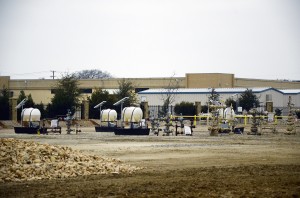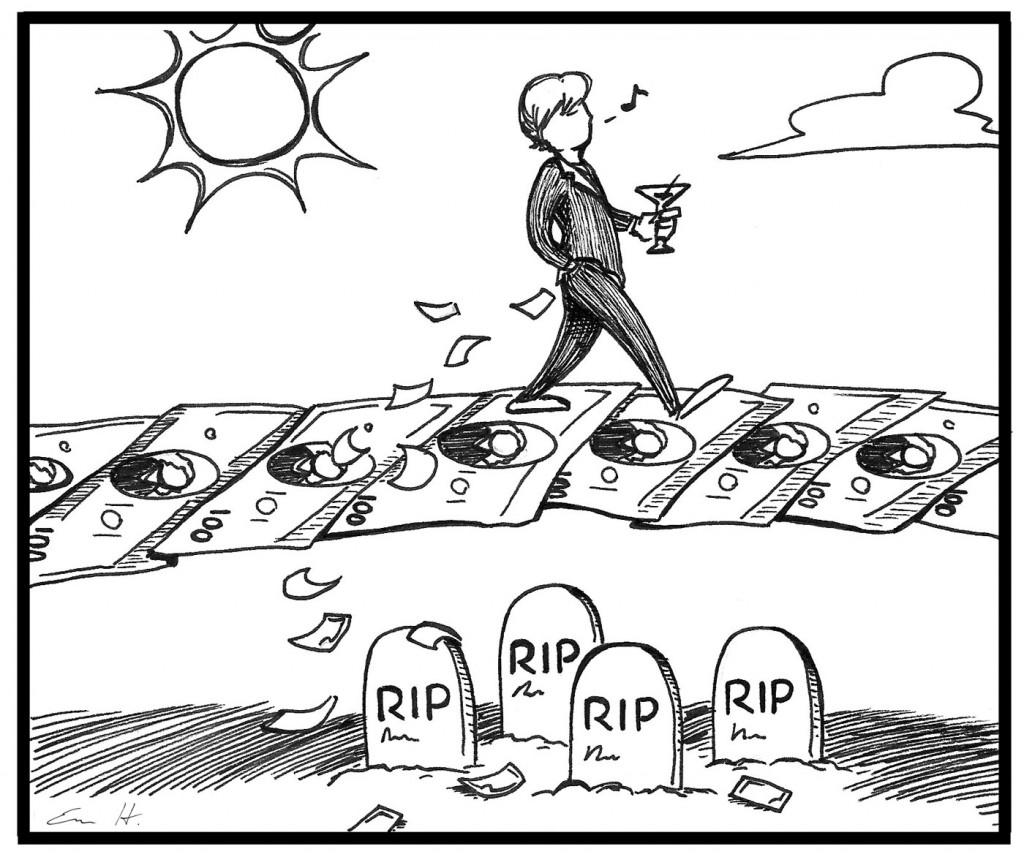By Erin Ratigan/tr news editor

The Azle area has been making headlines lately because of the high number of earthquakes that have occurred.
According to the city of Azle website, more than 20 earthquakes were recorded in the region since November. The Texas Railroad Commission, which is responsible for oil and gas regulation, hired a seismologist to study the area. One injection well was shut down, but that shutdown was reportedly not related to the recent earthquakes.
Brittany Osborn, a NW dance major who has lived in Azle for 13 years, said she experienced an earthquake a few months ago. Neither she nor her family was injured, but she said it was the “craziest thing she had ever felt.”
“I heard a shaking and banging sound, and my windows began to rattle, and I felt this sort of quick jolt,” she said. “It literally felt like I could feel the tectonic plates in the earth shift out and back in.”
Her grandparents were also affected, with picture frames falling from walls and glass breaking.
“Why is this happening so often all of a sudden?” she asked. “What are they doing to our earth for this to be happening?”
Contrary to popular belief, it is not fracking itself that is responsible for these quakes, said TR Campus geology instructor Michael Umphress, who has worked in the oil and gas industry for more than 20 years. The injection of wastewater into underground disposal wells is to blame, he said.
Umphress has written two letters to the Star-Telegram editor addressing the issue. In a letter sent in January, he referenced a study conducted in Denver in the ’60s, which linked disposal-well injection to an increase in earthquakes.
Umphress said the reason for this link is the high level of pressure caused in rock formations. He said if injection sites limited their wastewater injection, earthquakes would decrease exponentially.
“It’s a simple solution,” he said. “You don’t need to have a seismologist being hired down in Austin.”
Coordinator of student support Demesia Razo is an adviser to Ethos, an environmental club on TR Campus, and said the earthquakes aren’t the only problem with fracking.
“The earthquakes are concerning, but there are also several other environmental concerns with fracking, including water and air pollution,” she said.
Razo lived in southern California for eight years and said she became used to experiencing earthquakes. What is most concerning to her is the increasing occurrences in areas with high levels of fracking.
“There is a lot of good information out there about fracking, so I would encourage everyone to become more informed about what is occurring in our backyards,” she said.
Razo recommends the film Gasland to anyone wanting to learn more about fracking.
However, Umphress called the film “a big joke” and said the scene where one citizen lit his tap water on fire was staged using range oil.
“They actually tied a gas line into that long enough to get that flame going,” he said.
Osborn said the increase in earthquakes has made her uncomfortable living in Azle.
“I feel kind of unsafe with all these earthquakes. I never knew Texas was prone to earthquakes,” she said. “To have all these earthquakes … gets me kind of worried.”
Osborn is one of many citizens reacting to the quakes. On Jan. 21, angry protesters descended upon Austin to have their voices heard by an assembly of the Texas Railroad Commission.
Umphress said the Railroad Commission needs to address citizens’ concerns about fracking rather than funding more studies.
“The reason I wrote that second letter to the Star-Telegram is because the folks in Azle were not getting answers from the Railroad Commission,” he said. “And that is so irritating.”



























